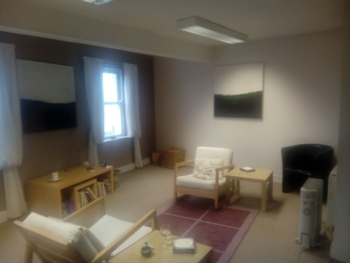
Our experience of living through a pandemic has meant dealing with a series of losses that few of us could have predicted in January. Collective stress has been extreme over the past six months and it is difficult not to be impacted by this tension in the ether. As human beings, we do vary in our attitude to risk, attitudes to authority, and the degree to which we seek safety in our lives. However, it is normal to resent fundamental changes to our lifestyle because a) it is not of our choosing b) there is the reality that no one in authority can tell us when all this will end. Some of these losses include;
Loss of Social Contact
The normal ways of connecting with others, chatting, meeting on the street, and organizing our social lives and celebrating life milestones have been severely damaged. We are tactile creatures and we need physical touch. Evidence shows that those who give and receive regular hugs tend to have higher levels of well-being. Zoom is no substitute for this contact.
Loss of Freedom
The element of spontaneity and choice in our freedom of movement has been curtailed. This is difficult for many. Humans seek novelty and variety in their lives and removing this is harsh. If your home feels more like a prison than a safe haven, it is going to be a very tough time.
Loss of Security
The need to feel safe and to forward plan is an innate need for most of us. Making plans is extremely difficult at the moment. Health security is spotlighted for the foreseeable. Anyone who wants to protect their health and worries about the vulnerable people they know will struggle. Losing a job and concerns for future income sources feeds financial insecurity. Work changes that are not of our making can lead to feelings of powerlessness and anxiety.
Loss of Loved Ones
The death of someone we love at a time of COVID, whether directly as a result of the virus or other reasons, is extremely difficult. We find comfort and meaning in ritual and being close to those who are ill and dying. This has been sabotaged in a pandemic. Community support matters at times of painful loss.
Loss of Meaning
We are meaning-seeking creatures. We seek to make sense of our lives by seeing the meaning and purpose in our experiences and relationships. When change is rapid and seemingly random it can undermine this sense of meaning and be psychologically unsettling at best and at worst very frightening. In the wise words of Victor Frankel, ‘We can tolerate any How in our lives when we understand the Why’.
Loss of Clarity in our Roles
The merging of home and work, work and school has challenged many. Loss of clarity in our roles and location boundaries is tough. Am I a parent? Am I a teacher? Am I a colleague or carer? Time and role conflicts will set us up for heightened stress.
If you are feeling overwhelmed give yourself permission to seek out a trusted professional. Remember it is an act of profound courage to share your story with someone. Take a look at www.iacp.ie. If you are worried about a minor, see www.jigsaw.ie. and www.spunout.ie
See www.yourmentalhealth.ie for options.
Aine Egan, MIACP is an experienced psychotherapist who blogs at www.talkingsolutions.ie/blog




